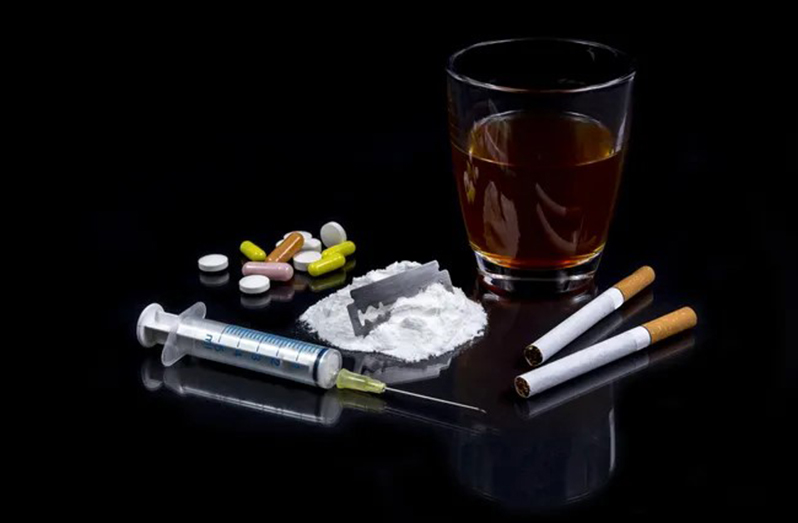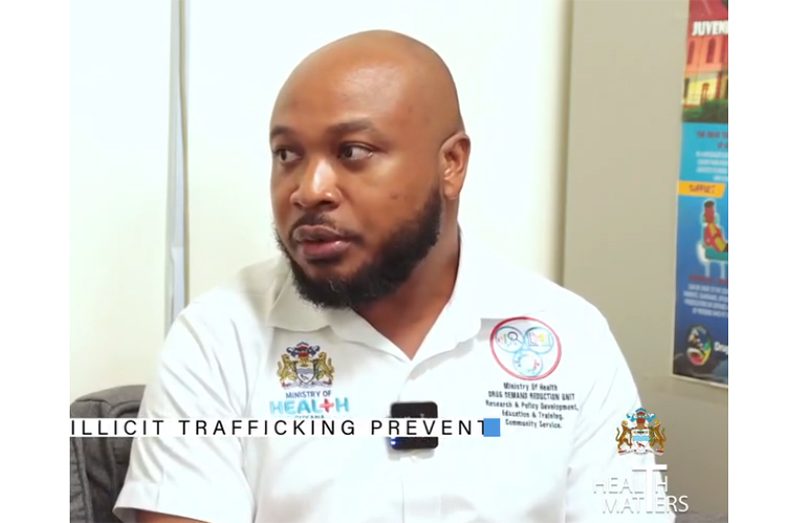–Unit’s head credits anti-drug awareness campaigns in schools for decrease in violence, teenage pregnancy
By Feona Morrison
THE Drug Demand Reduction Unit works relentlessly to provide a lifeline to those fighting addiction. Since its inception, it has led the way in delivering comprehensive care and support, intending to reduce drug demand through innovative treatment and prevention initiatives.
Further, the Unit’s “Kick Drugs Out of School” campaign is making impressive strides in combatting drug use among children, according to Dr. Travis Freeman, Head of the Drug Demand Reduction Unit. That campaign is now credited with not only reducing drug use, but also decreasing violence and teenage pregnancy. Spearheaded by a coalition of educators, parents, law enforcement, non-governmental organisations and healthcare professionals, the aim of the initiative is to create drug-free environments in schools across the country.
During a recent appearance on the Ministry of Health’s “Health Matters” show to commemorate International Day against Drug Abuse and Illicit Trafficking, Dr. Freeman revealed that the Drug Demand Reduction Unit handles the drug situation from three perspectives: Prevention, treatment, and rehabilitation.
He said, “As it relates to prevention, we do a lot of drug awareness and community outreaches. We have specific target populations that we address, primarily in-and-out-of-school youths, young professionals and also, we are targetting mature adults as well.”
According to him, there are problems in every stage of life, and people frequently seek coping mechanisms such as substance misuse, which includes narcotics like marijuana, tobacco, alcohol, and prescription and over-the-counter (OTC) drugs.
To make his point, Dr. Freeman revealed that athletes are misusing diuretics, a drug used to regulate blood pressure. He pointed out that some athletes are abusing the drug to “look more shred”, but he noted that this practice has consequences.
“Apart from getting rid of fluid and sodium, what some diuretics do is that they also get rid of potassium. And potassium is responsible for muscle contraction. So, those persons start to experience weakness, and they may even have an abnormal heart rhythm that can lead to cardiac arrest.”
Marijuana and tobacco continue to be the substances that are most misused in Guyana.
Although the impact of drug misuse is complex, including the impact of criminal activity on communities, Dr. Freeman said that the Unit’s primary focus is on the social and health consequences.
 ANTI-DRUG AWARENESS IN SCHOOLS
ANTI-DRUG AWARENESS IN SCHOOLS
He explained that in schools, the rigorous anti-drug campaign includes not just drug sensitisation but also physical activities, and that the programme has had a positive reaction.
“The response to the programme has been overwhelming, and very positive. A lot of youths gravitate towards the programme, and we would have already started to see some of those positive outcomes. More youths are selecting to do more positive behaviour practices; more healthy choices and we’ve noticed a decrease in inter-personal violence, particularly in those schools where we had this programme introduced. Also, there has been a decrease in teenage pregnancy,” Dr. Freeman explained.
Apart from the Ministry of Education, the institution collaborates with the Salvation Army, the Phoenix Recovery Project, and the Drug Treatment Court. He stated that the Unit is open to engaging with other stakeholders.
COMPREHENSIVE, CONFIDENTIAL
Individuals seeking assistance with substance abuse can contact the Drug Demand Reduction Unit at 252 Quamina Street, Georgetown. Appointments and walk-ins are accepted. Social workers, mental health counsellors, and psychologists are among the specialists who are there to assist.
It offers a holistic approach to addiction treatment, combining medical, psychological, and social support services under one roof.
Dr. Freeman said that the Unit’s service is comprehensive and confidential, stating: “There is no need to be hesitant; we have a comprehensive and holistic approach to substance misuse treatment. We have been managing adolescents, and young professionals. Our service here is very confidential and private. We have high-profile clients that no one knows of, who have been progressing very well. We have persons that we have gotten off the streets, and now we have reintegrated them back into their families; their communities. They are working and contributing to society. He emphasised that treatment programmes are tailored, noting, “Everything we do is evidence-based, evidence-informed, and [follows] international standards.”
He stated that the Unit’s specialists were trained by international organisations such as the United Nations (UN). Instead of abusing drugs, Dr. Freeman advises people to use healthy coping techniques like physical exercise, listening to music, reading, or contacting a healthcare provider.
International Day against Drug Abuse and Illicit Trafficking will be observed on Wednesday, June 26, 2024, under the theme, “The Evidence is Clear – Invest in Prevention”.



.jpg)








